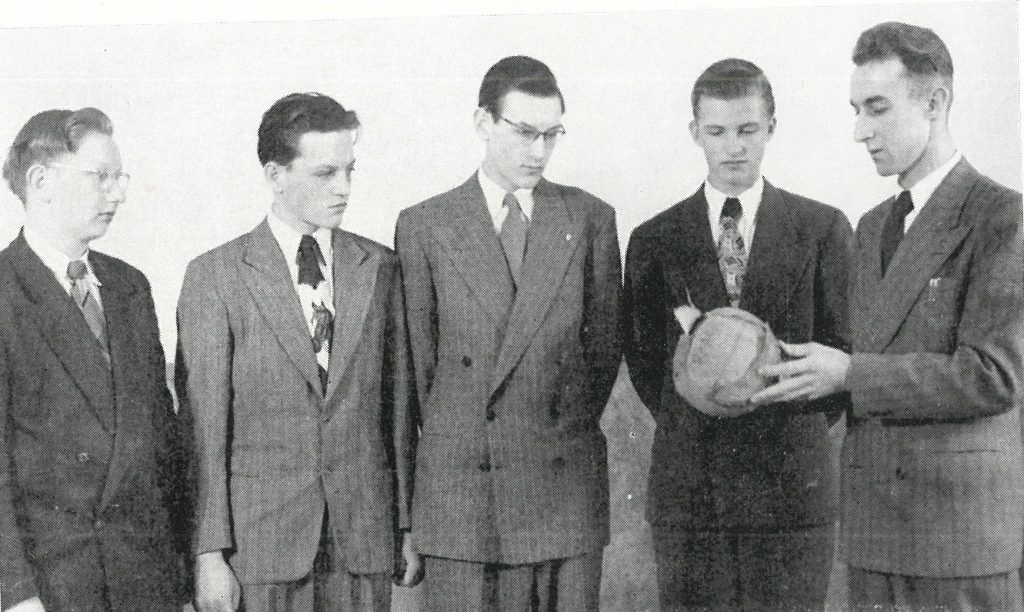
May 2025

MBCI honours the life and legacy of Dr. Henry Friesen, who passed away last month in Winnipeg. Dr. Friesen, an MBCI graduate of the class of 1952, leaves behind a remarkable story of scientific innovation, visionary leadership, and faithful service.
A Life of Faith and Family
Born in Morden, Manitoba in 1934, Henry was raised in pastor’s family with a strong Christian faith, which he made his own at a young age. Education was also an important value in the Friesen family, leading Henry and his brother to board together in Winnipeg to attend Mennonite Brethren Collegiate Institute for high school.
Chosen as his class valedictorian, and while still not knowing where his next steps would take him, Henry’s valedictory comments serve to foreshadow the life of faithfulness and service that lay ahead: “As we are confronted by the complexities and problems of the modern world, may we look to God for guidance and solace…We wish you success and happiness in your quest for knowledge; but above all we sincerely hope that you will be mindful, not only of the ephemeral things of this life, but also of the spiritual values.” (MBCI Yearbook, 1952)
Henry’s life certainly did lead him down the path of a quest for knowledge, as he went on to study medicine at the University of Manitoba, followed by training as an endocrinologist in Boston. It was while in Boston that the now Dr. Friesen met his wife Joyce. The family later welcomed two children, Mark and Janet. Henry and Joyce maintained active roles in faith communities wherever they lived.
Revolutionary Medical Contributions
As a visionary endocrinologist, Dr. Friesen made groundbreaking discoveries that transformed lives worldwide. In 1965, he isolated and purified prolactin, a hormone key to treating certain infertility disorders. This breakthrough led to the development of bromocriptine, enabling thousands of previously infertile women to become mothers.

At the University of Manitoba, where he later served as professor and head of the Department of Physiology, Dr. Friesen pioneered the use of human growth hormone (HGH) in children with HGH deficiency, helping thousands of children achieve increased stature. His prolific research resulted in more than 460 publications in the field of endocrinology.
Transforming Canadian Health Research
Perhaps Dr. Friesen’s greatest professional legacy lies in his transformation of Canada’s health research landscape. As Chair of the Medical Research Council, he recognized the need for a broader, more inclusive approach to health research funding. His leadership led to the creation of the Canadian Institutes of Health Research (CIHR) in 2000, dramatically expanding the scope and funding of health research in Canada. The generational impact of his work in restructuring Canada’s approach to health research will benefit countless Canadians for years to come.
A Legacy of Service
Dr. Friesen’s extraordinary contributions earned him numerous accolades, including membership in the Canadian Medical Hall of Fame, as a Companion of the Order of Canada, a Member of the Order of Manitoba, Distinguished Fellow of the Canadian Academy of Health Sciences, Fellow of the Royal Society of Canada, Recipient of the Canada Gairdner International Award and Wightman Award, President of the National Cancer Institute of Canada, and Founding Chair of Genome Canada. His lifelong commitment to education also led him to serve as found chair of Winnipeg Mennonite Elementary Schools in 1981.
It was Dr. Friesen’s faith that propelled his desire to serve God and humanity, an opportunity he fulfilled at the highest levels. His humility, wisdom, leadership, and grace were shared freely with friends and colleagues alike, serving as a testament to his life of faithfulness.

